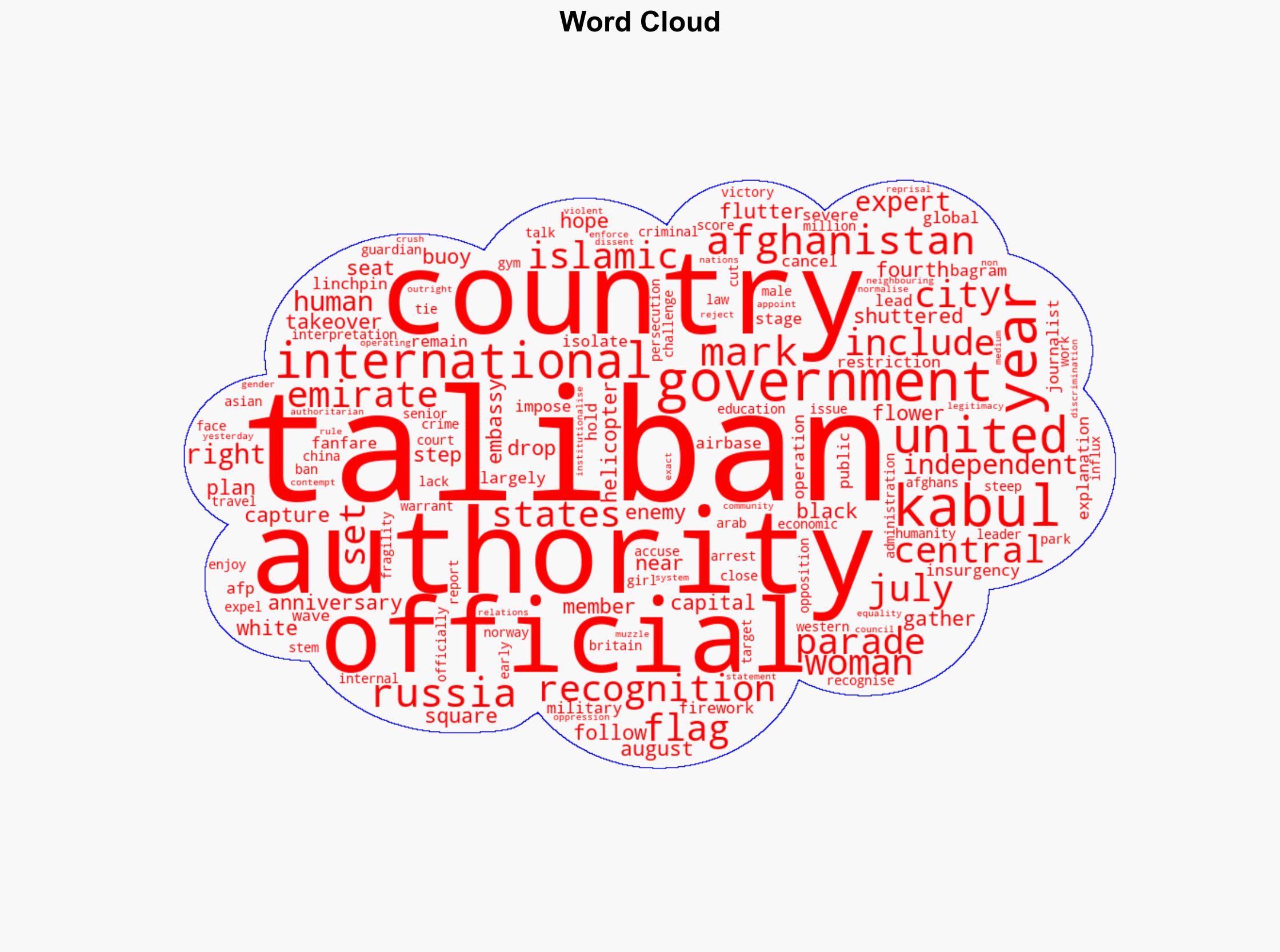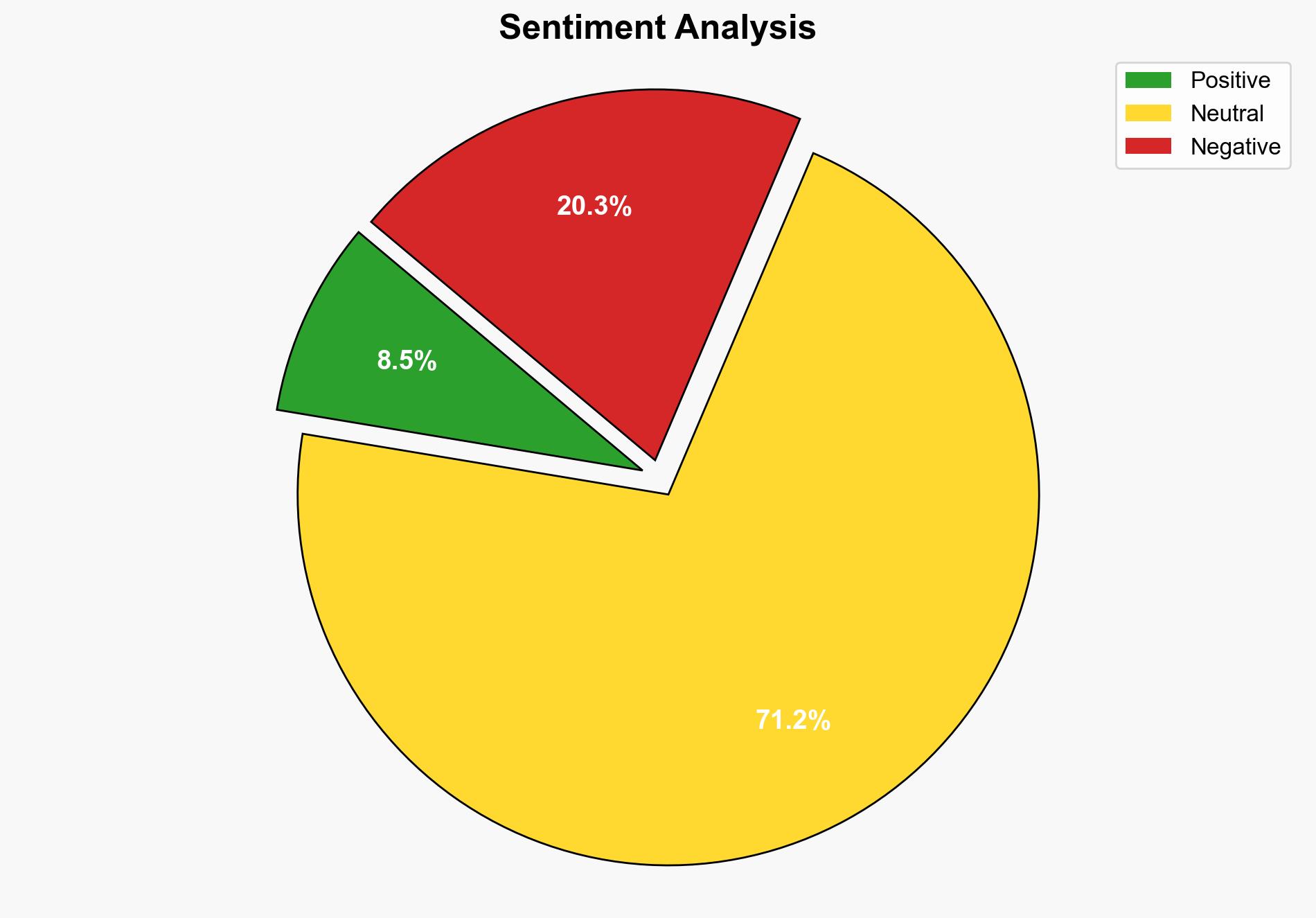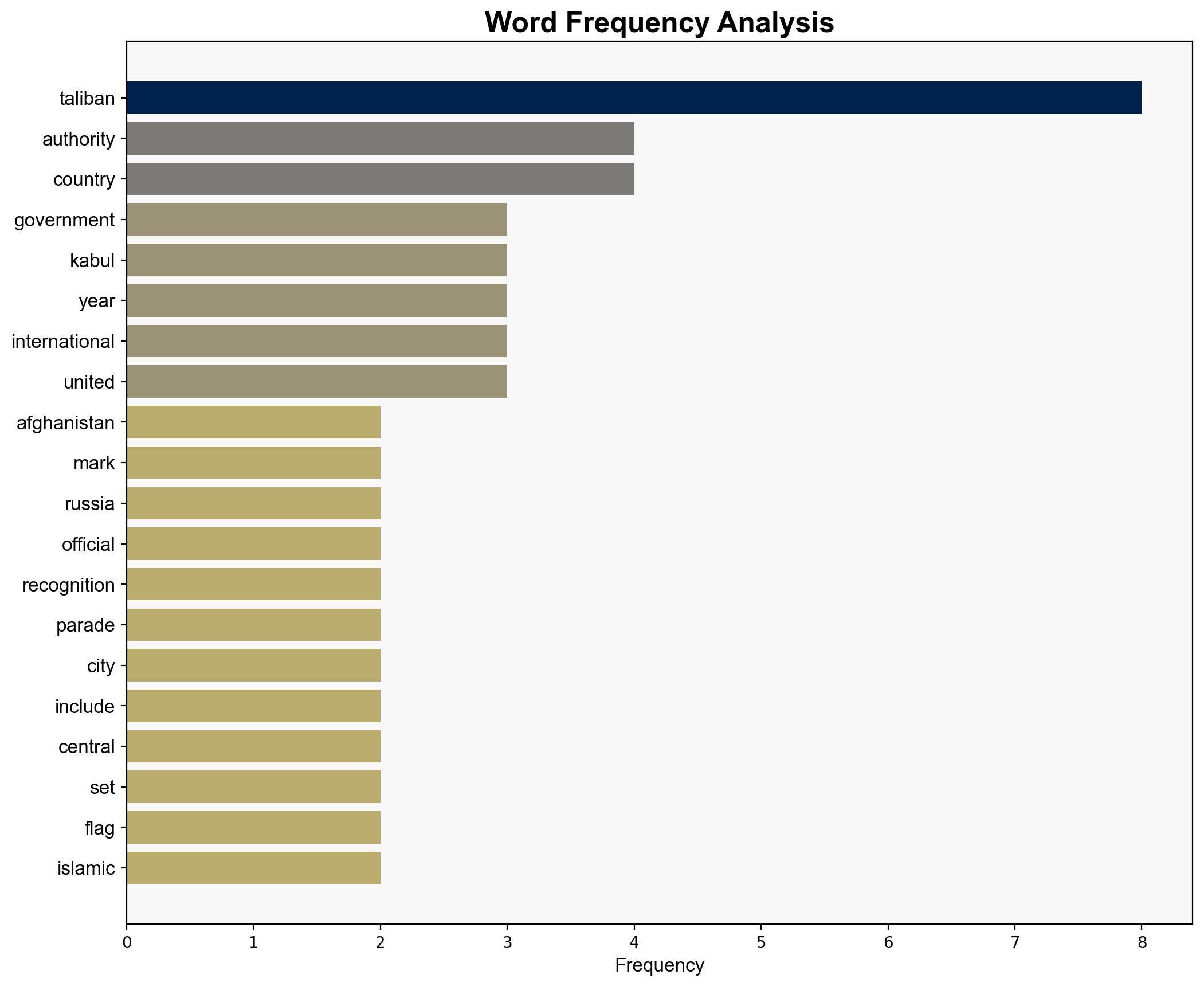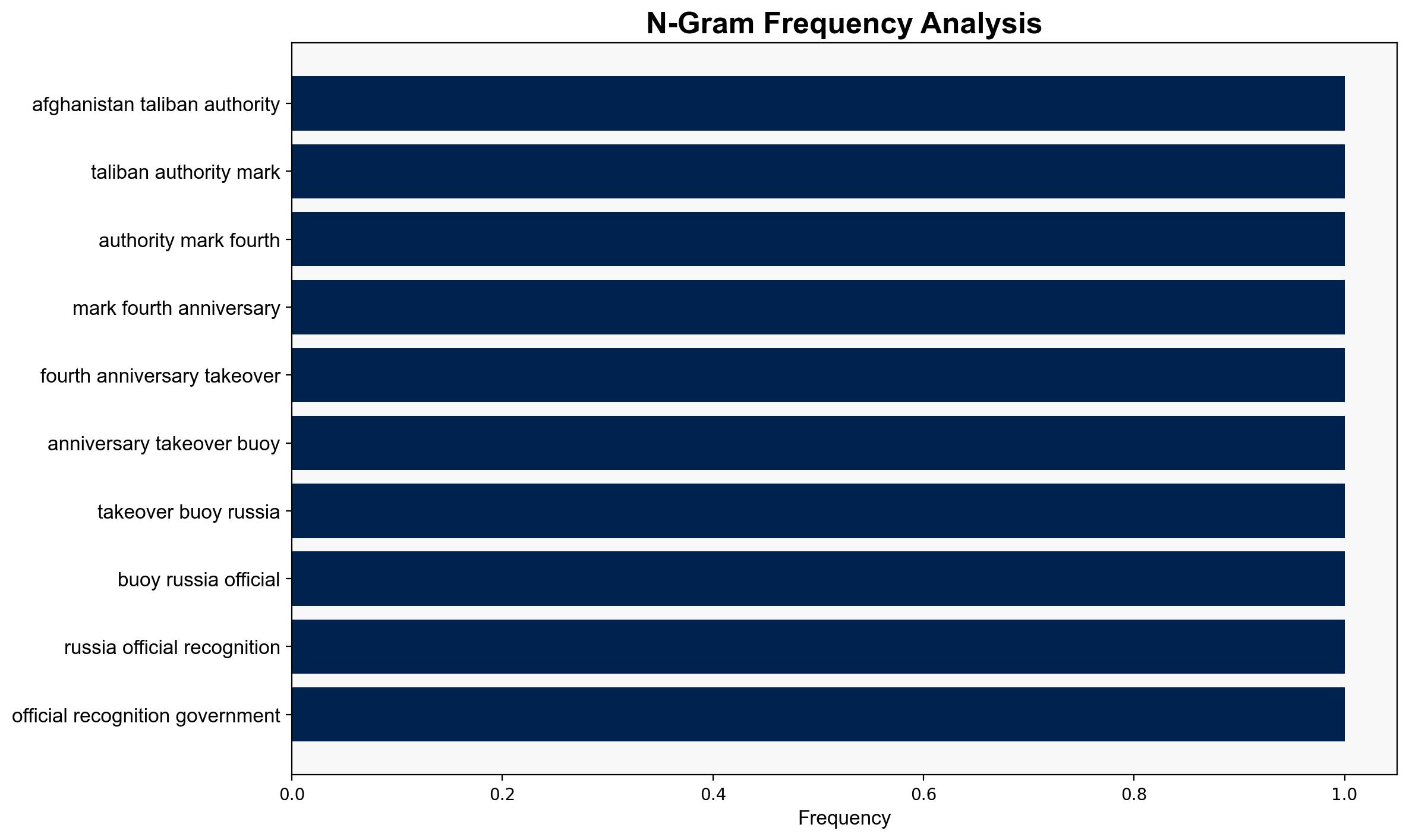Taliban mark fourth year in power in Afghanistan – RTE
Published on: 2025-08-15
Intelligence Report: Taliban mark fourth year in power in Afghanistan – RTE
1. BLUF (Bottom Line Up Front)
The most supported hypothesis is that the Taliban’s continued governance, marked by limited international recognition, is leading to increased internal and external challenges. Confidence level: Moderate. Recommended action: Engage in multilateral diplomatic efforts to address humanitarian concerns and stabilize the region.
2. Competing Hypotheses
Hypothesis 1: The Taliban’s governance is stabilizing, with increasing international recognition and internal consolidation of power. This is supported by Russia’s official recognition and ongoing talks with other countries.
Hypothesis 2: The Taliban remains isolated and faces significant internal and external challenges, including economic fragility and human rights criticisms. This is evidenced by the lack of widespread international recognition and ongoing human rights issues.
Using ACH 2.0, Hypothesis 2 is better supported due to the broader international context of limited recognition and persistent internal opposition.
3. Key Assumptions and Red Flags
Assumptions:
– Recognition by Russia will lead to broader international acceptance.
– The Taliban can maintain control despite economic and social challenges.
Red Flags:
– Limited recognition from key global players.
– Reports of human rights abuses and gender oppression.
Blind Spots:
– Potential shifts in regional alliances.
– Internal dissent within the Taliban not publicly visible.
4. Implications and Strategic Risks
The Taliban’s governance could lead to regional instability if economic conditions worsen or if human rights abuses escalate. There is a risk of increased refugee flows and potential radicalization if conditions do not improve. Geopolitically, the lack of recognition could push the Taliban towards alliances with non-Western powers, altering regional dynamics.
5. Recommendations and Outlook
- Engage in diplomatic efforts with regional powers to address humanitarian issues and encourage moderate governance.
- Monitor economic indicators and humanitarian conditions to anticipate potential refugee crises.
- Scenario Projections:
- Best Case: Increased international engagement leads to improved governance and economic conditions.
- Worst Case: Escalating human rights abuses and economic collapse lead to regional instability.
- Most Likely: Continued isolation with sporadic recognition and persistent internal challenges.
6. Key Individuals and Entities
– Senior Taliban leaders with arrest warrants from the International Criminal Court.
– Russian officials involved in recognition talks.
7. Thematic Tags
national security threats, human rights, regional stability, international diplomacy




